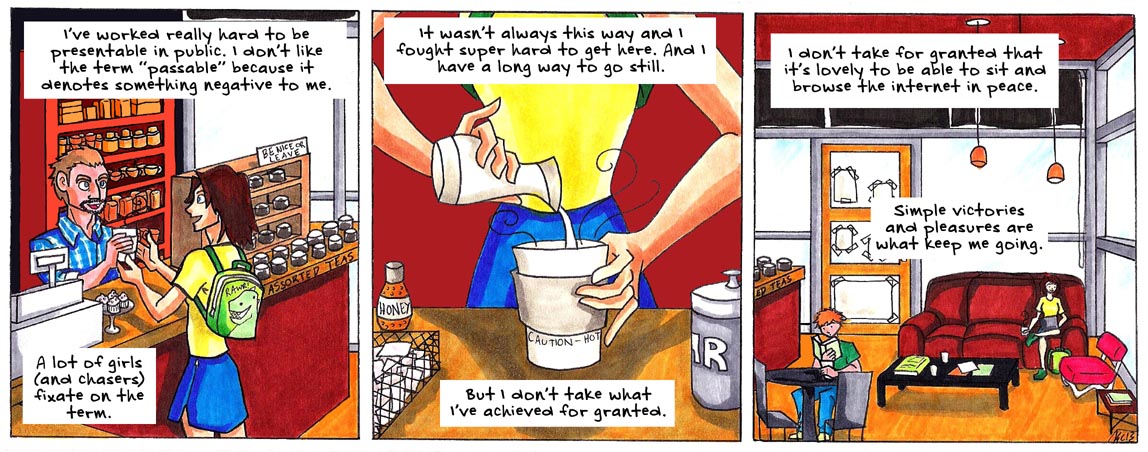Webcomic Wednesday // A Review of "Validation"

Callum Waterhouse ’18/ Emertainment Monthly Staff Writer
Story by Cristian Beranek
Art By Kelci Crawford
Official Site: http://www.validationcomic.com
It is safe to say that diversity in comics has become a big issue. Or, to put it more accurately, it has always been a big issue, but in recent years it has received a great deal of media attention. Despite how it sometimes looks, there are still people working to change the face of comics, but despite their best efforts, one very troubling fact remains. While several major comic publishers have made a concerted effort in recent years to put out more stories featuring characters of differing races, genders and sexual identities, most of the people writing theses stories have no direct ties to the groups they are supposedly trying to represent.
This is a problem which was directly addressed in a recent storyline of Validation. The story told in Validation is not one about the struggle for diversity in comics, though it does come up. Writer Christian Beranek and artist Kelci Crawford are not trying to write a narrative documenting that particular struggle. Rather, they are trying to be part of the solution and they are doing it in the most obvious, yet somehow most difficult way possible. They are trying to make a comic about the experiences of a person who is part of a group that is not typically represented in comic books, created by people who are a part of the same group.
Validation is an ongoing webcomic about the life of Ally, a transgender girl living in an unnamed city in the United States. There is no real setup beyond this, no ongoing conflicts or plot points. It is just the story of a girl going through life and dealing with the same problems as the rest of her peers. The story is formatted much in the same way as a diary comic, interspersing events and conversations with Ally’s internal monologue, giving one a real sense of seeing through her eyes.

Getting to know Ally is very important, because the relationship she builds with the reader is one of the reasons that this comic feels as compelling as it does. Ally does not feel like a character whom we have come to observe, but a friend whom we have come to know and respect. There is something inherently likable about Ally. She is an unassailable free spirit and an unapologetic geek. The sort of friend who most of us would want with us in times of crisis. Beranek and Crawford have done a remarkable job of crafting a character who serves as a great eye opener to many of the problems unique to the transgender community without letting her slip into the realm of idealization and wish fulfillment.
Sadly, here is where we must address the elephant in the room. As implied above, one’s ability to enjoy Validation rests largely on whether one can develop an affection for the main character, Ally. The problematic part is that, given the very personal nature of the narration, we spend much of the comic listening to Ally’s thoughts and opinions, and some of those opinions are going to piss some people off.

As for the artwork itself, it suits the story very well. Crawford’s art style involves combining the maximum amount of detail with the minimum amount of flourish. The people and actions of the story are presented as they are, with few deliberate stylizations or attention grabbing “comic book” effects, which fits well with the naturalistic style of the writing.
Moreover, Crawford’s art brings an expressiveness to the main characters, especially Ally. It is safe to say that it would be a great deal harder to get inside Ally’s head if the artwork did not always make it so easy to tell what she is feeling or thinking. This is comics at its best, when the words and pictures work together to make the whole, neither doing the job alone.
There is no “magic bullet” for making comics a more welcoming place. It is going to be a long, hard road with many setbacks. The best most of us can do is to try and support the creators who are making the world of comics a more diverse and wonderful place. But even if all of that was not the case, even if this comic meant nothing to its particular time and place, Validation would still be worth reading. It is a remarkable slice-of-life story and we hope it continues for many years to come.